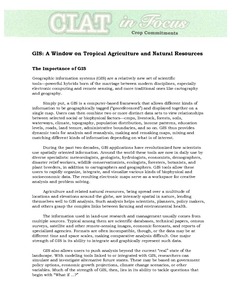The Impact of HIV/AIDS on Land: Case Studies from Kenya, Lesotho and South Africa
Paper prepared for the FAO’s Southern and Eastern Africa Office. Contains introduction to the impact of HIV/AIDS on land issues – land use, land rights, land administration; country studies; the impact of HIV/AIDS in Lesotho, in Kenya, in South Africa, and general findings and recommendations. Latter include land use strategies, land rights and land administration, and developing solutions.






